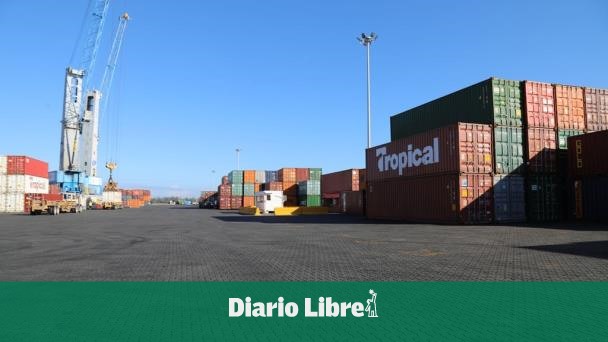At the end of 2023, the Dominican Republic registered a total of 51,000 importersHowever, 29.9% of this total, equivalent to 15,264 companies or individuals, operate in informalitywhich raises serious questions about its activity and regulation.
According to the National Statistics Office (ONE), of the importers In total, 70.1% are companies or individuals formal employersrepresenting 99.9% of the total imported value.
The report reveals that formal importers totaled 35,736 units in 2023, with a slight decrease of 1.4% compared to 2022, when there were 36,253. This decrease in the number of importers formal exports, coupled with a 6.8% drop in imported value to $28.758 billion, suggests a challenging economic environment for trade.
Informality In the sector, this not only affects competitiveness, but also limits access to financing and legal benefits. The lack of information on the 15,264 informal entities highlights the difficulty in regulating this segment and understanding its impact on the economy.
In the document “Profile of importing companies 2023″, In terms of employment, the ONE details that the importers Formal employment in the country employed approximately 945,294 people in 2023, representing an increase of 5.7% compared to the previous year. Most of these jobs are concentrated in the service sector, which accounts for 42.1% of the total.
Despite a slight improvement in female representation, men still make up 61.2% of the workforcewith a gender gap of -22.4%.
The total salary paid by the formal importers The average salary per employee was 34,811.5 million pesos, which is equivalent to 44.9% of the total salaries paid by formal employers. In the mining and quarrying sector, the average salary per employee reached 71,042 pesos.
Countries of origin
The main ones countries of origin Imports include:
- USA
- China
- Brazil
- Mexico
- Spain
In addition, the national regime accounted for 82% of the total imported value in 2023, which shows the importance of formality in trade.
The situation of informality In the import sector, it highlights the need for policies that promote regularisation and strengthen the formal economy, thereby ensuring a more competitive and sustainable environment.
Decline in importers of manufactured products in 2023
In 2023, the import sector In the Dominican Republic there was a downward trend in the number of importers of manufactured products, according to the latest analysis by the ONE.
- The chapter that leads this category, “Machines and apparatus, electrical materials“, counted 18,058 importerswhich represents 50.5% of the total, although this implies a decrease of 11.1% compared to 2022.
- The second most relevant chapter, “Nuclear reactors, boilers and mechanical parts“, had 16,556 importerswith a share of 46.3%, also experienced a drop of 5.2% compared to the previous year.
However, not all sectors showed negative performance. The chapter on “plastic materials and articles thereof” stood out for being one of the few in which the amount of importers increased, with a growth of 24.2% compared to 2022.
This panorama highlights the need to analyze the causes behind the decline in certain sectors, as well as the emerging opportunities In others, such as plastic materials, which could provide a boost to import trade in the country.
The informality in the country
In June of this year, the governor of the Central Bank of the Dominican Republic (BCRD), Hector Valdez Albizu; and the Minister of Industry, Commerce and SMEsVíctor -Ito- Bisonó, presented the National Survey of Micro, Small and Medium Enterprises (SMEs) 2022-2023, where it was determined that, from a universe of 404,034 micro, small and medium-sized companies (SMEs) of the Dominican Republic, 85.2% of the SMEs It is informal.

















